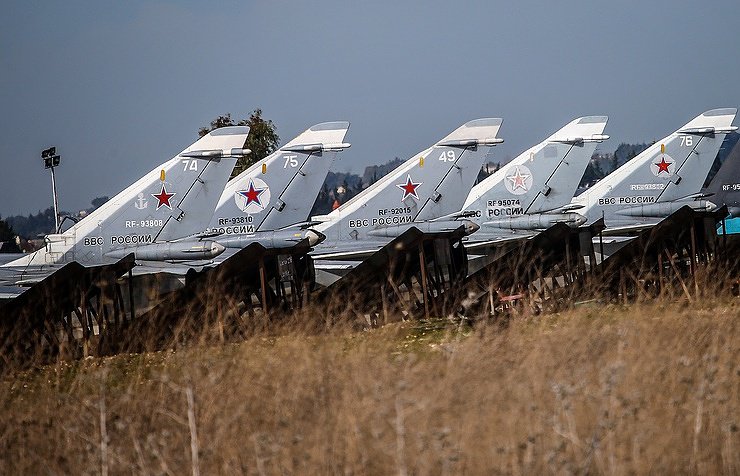With what was termed breaches of the ceasefire agreements by insurgent groups in southwest Syria, the Russian air force in Syria announced the end of the ceasefire agreement they reached with the United States and Jordan in the area.
Meanwhile, government forces loyal to Syrian President Bashar al-Assad are staging a new offensive to retake one of the last rebel-held regions in that area of the country.
The Hmeymim base, an airfield located in the west coast province of Latakia, is one of two major Russian-leased military installations in Syria, the other being a naval base about 40 miles down the coast in Tartous. Russian warplanes—likely based in Hmeymim—reportedly struck targets Monday in the southwestern province of Daraa, where Russia and Syria had agreed last year to a ceasefire with rebel groups attempting to overthrow Assad since a 2011 uprising backed by the U.S., Turkey and Gulf Arab states.
“The end of the period of reduced escalation in southern Syria can be confirmed after it was breached by extremist groups and illegitimate armed groups operating against Syrian government forces, while the agreement remains in the Syrian province of Idlib,” the Central Channel for the Hmeymim Military Base wrote on Facebook.
The base also denied reports of civilian casualties in a later message, maintaining that “Russian bombers do not target civilian sites by any means. Our are limited to the destruction of the terrorist bases belonging to the Nusra Front and ISIS [Islamic State militant group] terrorists, in order to support friendly land forces advancing on the ground.”
The ceasefire collapse also occurred as airstrikes reportedly struck Damascus International Airport on Tuesday. While the attack remains unclaimed, it has been widely blamed on Israel, who rarely takes responsibility for strikes against Iranian and pro-Iran targets in neighboring Syria. The U.K.-based, pro-opposition Syrian Observatory for Human Rights reported that Israeli warplanes struck “a shipment of Iranian weapons” that had arrived at the airport, while Russia’s state-run Sputnik News highlighted reports claiming an Iranian cargo plane may have been the target.
Iran-backed groups, such as the Lebanese Shiite Muslim Hezbollah movement, have reportedly pulled back from southwestern Syria as part of a recent agreement, but Iran has maintained that it would not leave Syria unless asked to do so by the local government. The latest airstrikes in Damascus, however, may indicate that the deal has fallen apart or did not preclude Israeli attacks elsewhere in the country. Last week, unclaimed airstrikes blamed on both the U.S. and Israel reportedly killed dozens—including Iraqi militias—in Syra’s far eastern province of Deir Ezzor.
Assad has kept close relationships with both Moscow and Tehran during the Civil War but has called for the forces of both the United States and Turkey, which they claim are in their country illegally and without permission to leave immediately.
To read the entire article from Newsweek, click here:
Photo courtesy Wikipedia










COMMENTS